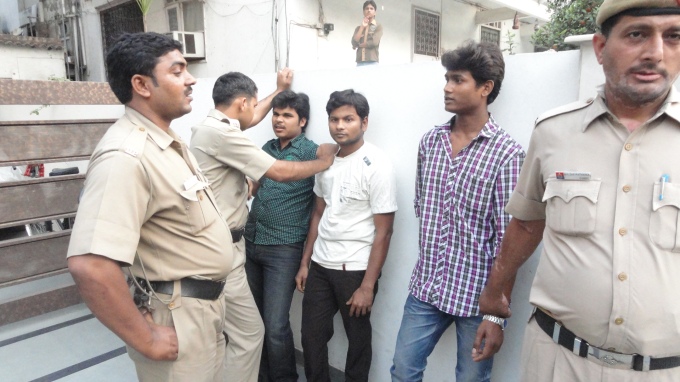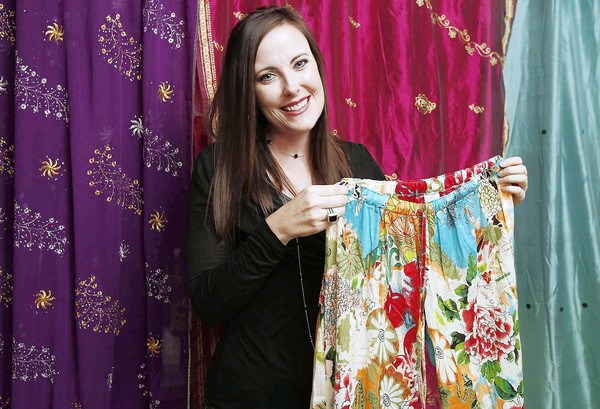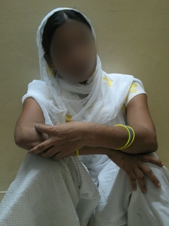
THE ARRESTED TRAFFICKER - CRIME BRANCH DELHI / CID WEST BENGAL / SHAKTI VAHINI JOINT OPERATION
EQUALITY INDIA NEWS / A SHAKTI VAHINI RESEARCH INITIATIVE
India has ratified the United Nations Convention against Transnational Organised Crime and its three protocols and the United Nations Convention against Corruption.The United Nations Convention against Transnational Organised Crime is the main international instrument in the fight against transnational organized crime. It recognizes the need to foster and enhance close international cooperation in order to tackle those problems. The convention is further supplemented by three Protocols, which target specific areas and manifestations of organized crime namely Protocols to combat (1) trafficking in persons (2) migrant smuggling and (3) illicit trafficking in firearms.
The United Nations Convention against Corruption complements the United Nations Convention against Transnational Organised Crime. The Convention introduces a comprehensive set of standards, measures and rules that all countries can apply in order to strengthen their legal and regulatory regimes to fight corruption. The Convention enumerates in detail the measures to prevent corruption, including the application of prevention policies and practices, the establishment of bodies for that purpose, the application of codes of conduct for public servants, and public procurement. It recommends promoting transparency and accountability in the management of public finances and in the private sector, with tougher accounting and auditing standards. Measures to prevent money-laundering are also provided for, together with measures to secure the independence of the judiciary, public reporting and participation of society are encouraged as preventive measures. The Convention recommends the State Parties to adopt such legislative and other measures as may be necessary to establish a whole series of criminal offences. These are:
• Corruption of national or foreign public officials and officials of public international organizations;
• embezzlement, misappropriation or other diversion by a public official of any public or private property;
• trading in influence;
• abuse of functions and illicit enrichment.
In the private sector, the Convention calls for the creation of offences of embezzlement and corruption. There are other offences relating to laundering the proceeds of crime, handling stolen property, obstructing the administration of justice, and participating in and attempting embezzlement or corruption.
This also implies that Government of India formally adopting definition of Human Trafficking which is :“Trafficking in persons” shall mean the recruitment, transportation, transfer, harbouring or receipt of persons, by means of the threat or use of force or other forms of coercion, of abduction, of fraud, of deception, of the abuse of power or of a position of vulnerability or of the giving or receiving of payments or benefits to achieve the consent of a person having control over another person, for the purpose of exploitation. Exploitation shall include, at a minimum, the exploitation of the prostitution of others or other forms of sexual exploitation, forced labour or services, slavery or practices similar to slavery, servitude or the removal of organs;
The UN Protocol makes Human Trafficking and Smuggling a organised crime and call upon states to provide victim support , victim repatriation , witness support and protection , Joint Investigations between member nations etc. It specially calls upon nations to ensure implementing measures to provide for the physical, psychological and social recovery of victims of trafficking in persons, including, in appropriate cases, in cooperation with non-governmental organizations, other relevant organizations and other elements of civil society, and, in particular, the provision of: (a) Appropriate housing; (b) Counselling and information, in particular as regards their legal rights, in a language that the victims of trafficking in persons can understand; (c) Medical, psychological and material assistance; and (d) Employment, educational and training opportunities. It mandates nations to ensure that take into account the age, gender and special needs of victims of trafficking in persons, in particular the special needs of children, including appropriate housing, education and care.
It also provides for nations to provide for the physical safety of victims of trafficking in persons while they are within its territory and ensure that its domestic legal system contains measures that offer victims of trafficking in persons the possibility of obtaining compensation for damage suffered.
It takes a commitment from nations that they shall establish comprehensive policies, programmes and other measures inter alia to prevent and combat trafficking in persons; and (b) to protect victims of trafficking in persons, especially women and children, from revictimization. States Parties shall endeavour to undertake measures such as research, information and mass media campaigns and social and economic initiatives to prevent and combat trafficking in persons. Policies, programmes and other measures established in accordance with this article shall, as appropriate, include cooperation with non-governmental organizations, other relevant organizations and other elements of civil society.States Parties shall take or strengthen measures, including through bilateral or multilateral cooperation, to alleviate the factors that make persons, especially women and children, vulnerable to trafficking, such as poverty, underdevelopment and lack of equal opportunity. States Parties shall adopt or strengthen legislative or other measures, such as educational, social or cultural measures, including through bilateral and multilateral cooperation, to discourage the demand that fosters all forms of exploitation of persons, especially women and children, that leads to trafficking.
It mandates that nations shall, as appropriate, cooperate with one another by exchanging information, in accordance with their domestic law, to enable them to determine: (a) whether individuals crossing or attempting to cross an international border with travel documents belonging to other persons or without travel documents are perpetrators or victims of trafficking in persons; the types of travel document that individuals have used or attempted to use to cross an international border for the purpose of trafficking in persons; and the means and methods used by organized criminal groups for the purpose of trafficking in persons, including the recruitment and transportation of victims, routes and links between and among individuals and groups engaged in such trafficking, and possible measures for detecting them.

Trafficking racket in East of Kailash busted, 3 arrested
It ensures that nations shall provide or strengthen training for law enforcement, immigration and other relevant officials in the prevention of trafficking in persons. The training should focus on methods used in preventing such trafficking, prosecuting the traffickers and protecting the rights of the victims, including protecting the victims from the traffickers. The training should also take into account the need to consider human rights and child- and gender-sensitive issues and it should encourage cooperation with nongovernmental organizations, other relevant organizations and other elements of civil society.
Reacting to the news Ravi Kant Advocate Supreme Court of India and President Shakti Vahini said that the ratification by India of the UN Protocol is a big step for the protection of rights of victims of Human Trafficking and Smuggling. This will certainly lead to stricter laws on Human Trafficking in India. This is also a step that Government of India has shown its commitment to fight Human Trafficking and Smuggling.










